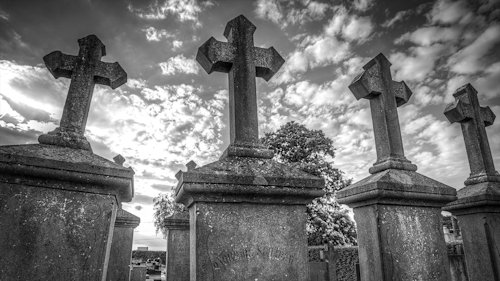According to the Office of National Statistics, the average life expectancy for a UK male is 79.1 years, with women usually living slightly longer until the age of 82.8 years and for most people, the end comes. However, looking back in history, there have been some very unexpected and peculiar deaths.
Killed by a tortoise
Aeschylus, an ancient Greek playwright was killed at the age of 67, when an eagle dropped a tortoise on his head. The eagle is said to have mistaken his baldness for a rock and tried to use it to crack the shell of its prey. To add a further strange twist to the death of Aeschylus, Roman author Pliny, suggested that Aeschylus had been spending a lot of time outdoors to avoid a prophecy that he would be killed by a falling object.
Ironically, Aeschylus was known as the 'father of tragedy' for his work in theatrical Greek tragedies. Aeschylus's work was so respected by the Athenians that after his death, his were the only tragedies allowed to be restaged in subsequent competitions
A fiery end for a would-be God
It is said that Empedocles, who was a Greek philosopher, threw himself into the volcano Mount Etna, on the island of Sicily. According to Aristotle, Empedocles was roughly 60 at the time of his death and it is said that he committed suicide to prove to his disciples that he could become a God. The legend goes that Empedocles believed that he was immortal and that upon throwing himself into the volcano, would survive unharmed. He wasn't immortal, but he is remembered - a large underwater volcano off the coast of Sicily was named 'Empedocles' in 2006.
Dying laughing
We've all heard jokes that have had us 'dying with laughter' but that's just an exaggerated figure of speech, isn't it? In the case of 17th century Scottish writer Thomas Urquhart, it was much more. Urquhart had been a fierce enemy of Parliament and Oliver Cromwell, even being declared a traitor and taken prisoner. It is said that Urquhart died in a fit of laughter after learning of the Restoration of English monarch Charles II.
Deadly dancing Jean-Baptiste Lully was a 17th century Italian-French composer who was considered a master of the baroque style of music and spent a lot of his working life in the court of Louis XIV of France. Performing a Te Deum, a form of Christian hymn, to celebrate King Louis' recovery from surgery, Lully struck himself in the foot with a long conducting staff. The foot became infected and although doctors wanted to amputate, the composer refused, because it would mean that he could not dance anymore. Unfortunately, gangrene spread through Lully's body, infecting his brain and killing him.
The King who ate himself to death
Adolf Frederick was an 18th century king of Sweden who is known to Swedish children as the 'king who ate himself to death'. He ate a huge meal in February 1771, consisting of lobster, caviar and sauerkraut, along with 14 servings of his favourite dessert, Semla, a traditional Swedish sweet roll full of sugar and calories. Already obese, the greedy King succumbed to digestive problems and died, only to become the lead character in a cautionary tale to stop the children of Sweden developing an unhealthy love of food.
Accidental courtroom drama
Clement Vallandigham was an American politician and lawyer who was also the leader of the Copperheads: an anti-war faction of Democrats during the time of the American Civil War. In 1871, he was representing a man named Thomas McGehan, who was on trial for the murder of another man in a barroom brawl in Ohio. To prove that the victim, a man called Tom Myers had accidentally shot himself, Vallandigham took a pistol - which he thought was unloaded - and attempted to demonstrate his theory to the jury. Tragically, he snagged the gun on his clothing and accidentally fired the pistol into his stomach, wounding himself fatally.
Back in the present day, Dying Matters noted that 70% of us say that we would prefer to die at home. But as these strange historical deaths show, death can come very unexpectedly. It's unlikely that any of us will be killed by a falling tortoise, but a funeral plan is an easy way to plan ahead and help avoid rising funeral costs, and help make things easier for your loved ones at a difficult time.
For more information about our funeral plans, please request an information pack or contact a member of our dedicated team on 0808 169 4534 - whatever your question, we'll be happy to help.







